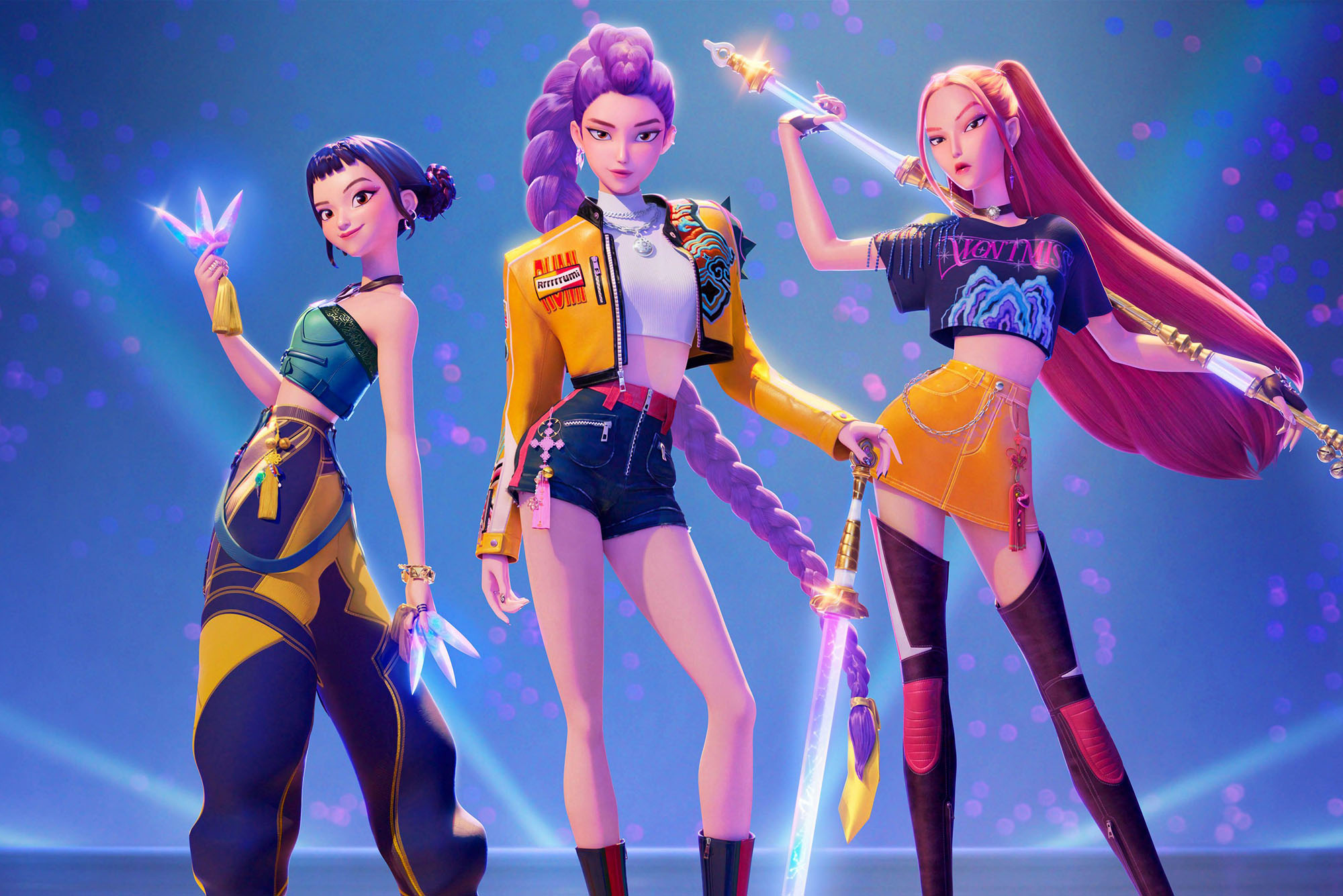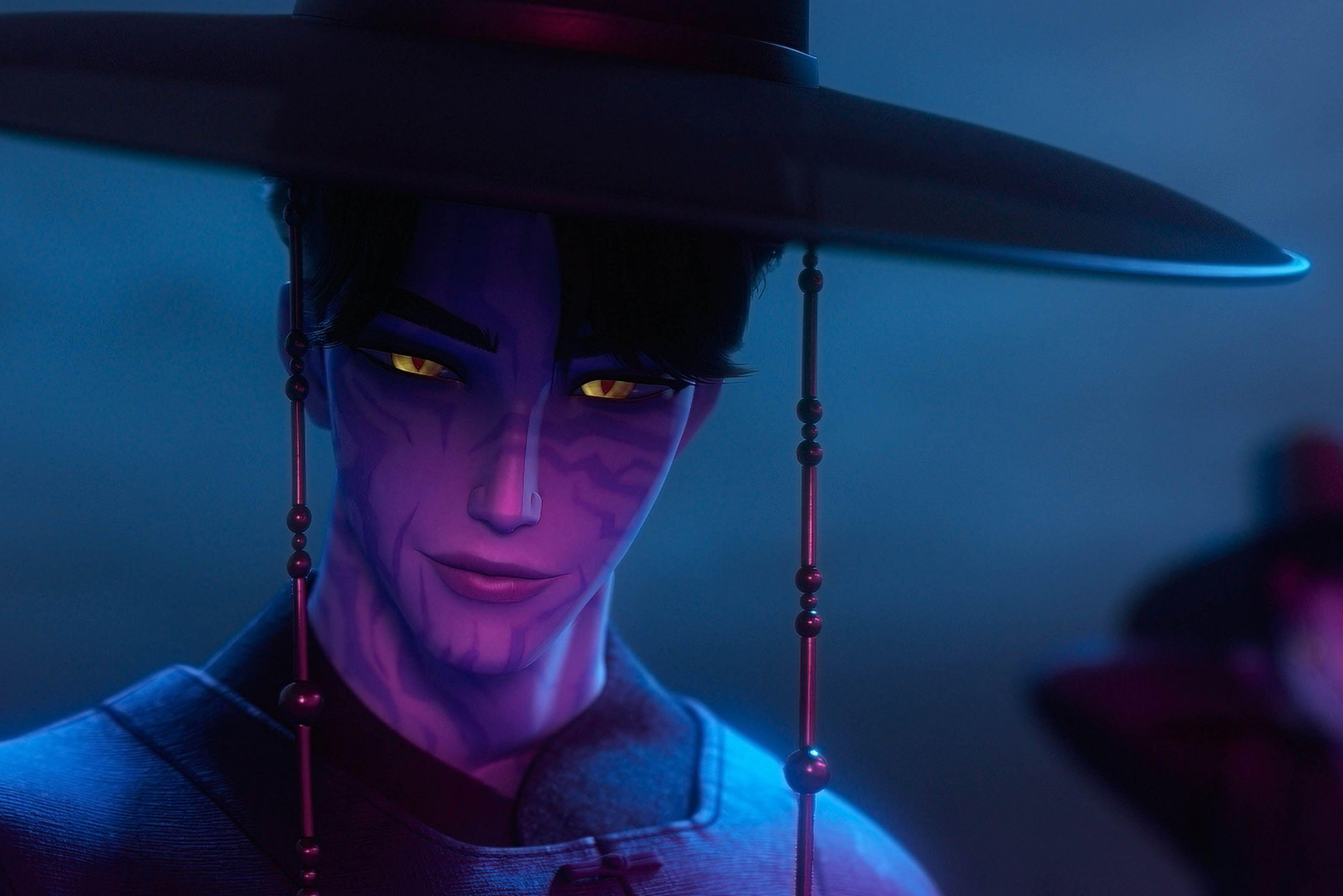KPop Demon Hunters: Come for the Soundtrack, Stay for the Celebration of Korean Culture

Underneath the dazzling animation and chart-topping soundtrack, Netflix’s KPop Demon Hunters presents Korean culture unabashedly, without watering it down for a Western audience, says Yoon Sun Yang, a CAS associate professor of Korean and comparative literature. Photo via Alamy/Netflix/Columbia Pictures/Sony Pictures Animation
KPop Demon Hunters: Come for the Soundtrack, Stay for the Celebration of Korean Culture
Netflix blockbuster is filled with authentic Korean cultural references, says BU’s Yoon Sun Yang
Chances are, you’ve seen KPop Demon Hunters by now. Or, if somehow you’ve missed Netflix’s huge new blockbuster, you’ve probably still heard its infinitely catchy chart-topping soundtrack. Maybe you even went to a sing-along showing of the streaming juggernaut in a real brick-and-mortar movie theater this past weekend. If you could get a ticket, that is. The limited theatrical release sold out more than 1,000 screenings during the single weekend it was available.
Much of the film’s success comes from its bighearted storyline—it presents Korean culture unabashedly, without “watering it down for a Western audience,” says Yoon Sun Yang, a Boston University College of Arts & Sciences associate professor of Korean and comparative literature and a core faculty member of the Women’s, Gender, & Sexuality Studies Program.
The animated movie—about a K-pop girl band that must save its fans from a group of demons who have taken the corporeal form of a K-pop boy band—has been hard to miss this summer. It’s been viewed more than 210 million times on Netflix since its release in July, and is well on its way to becoming Netflix’s most-viewed movie of all time (just behind the 2021 film Red Notice). Its soundtrack is full of K-pop earworms, and several of the hits cracked the Top 10 on the Billboard Hot 100 chart this summer.
Yang says she was initially reluctant to watch the film, wary that historical and cultural inconsistencies would render it nearly unwatchable. “But I was pleasantly surprised!” she adds.

From its very first moments, KPop Demon Hunters is an exuberant celebration of Korean culture. The film opens with a quick backstory on its trio of main characters, members of the K-pop girl band Huntrix, by situating them within the context of a long line of female demon-hunting, culture-protecting women. This is no coincidence, Yang says, in a country where there is a long cultural history of female shamans.
The movie positions band members Rumi, Mira, and Zoey as inheritors and practitioners of a shamanistic ancient ritual called gut, wherein a shaman, or mudang, drives away evil spirits using music, dance, costume, and incantations. While the 2025 version of this ritual includes sold-out pop concerts and viral music videos, its roots in Korean culture run deep, Yang says. (In fact, one of Huntrix’s demon-hunting ancestors may have a voice familiar to members of the BU community: The character Celine, a former member of the fictional girl band Sunlight Sisters, and a mother figure for Rumi, is voiced by BU alumna Yunjin Kim (CFA’93)).
Huntrix’s enemies, underworld-dwelling demons who rise up in the form of a rival K-pop boy band named Saja Boys, also follow traditional folklore storylines. Their name, saja, is a shortened version of the Korean word for a reaper who guides souls to the afterlife. Indeed, in the movie, Huntrix and the Saja Boys are battling it out for the souls of their (rabid) fans. The Saja Boys’ final costumes, memorable wide-brimmed hats and black cloaks, are also reminiscent of traditional grim reaper iconography, Yang says.
There are smaller details throughout the movie, as well. Meals include a variety of small side dishes known as banchan—a vital part of Korean cuisine. “It’s not just kimchi we see on the tables,” Yang says, “it is many small banchan, which is accurate to how Korean food is actually served and eaten.”
But most notably for Yang, the movie represents the first transcontinental version of K-pop, a style of hyper-synchronized, super catchy pop music and dance that originated in South Korea.
Recently popularized outside South Korea by bands such as BTS and Blackpink, the bubbly pop music and tightly choreographed dancing inspires intense fandoms. KPop Demon Hunters, Yang notes, was created entirely by Korean-Canadian and Korean-American filmmakers and producers, making it a singular moment for the export of Korean culture.
“We see K-pop growing to the next level when this successful version was made entirely outside the Korean border,” she says.
Many of the hit songs’ lyrics were never translated out of Korean, another signature style of K-pop music, but one that’s especially noteworthy given the soundtrack’s vast popularity in the United States (and other English-speaking countries), Yang adds.
“It’s a win-win,” she says. “Korean culture doesn’t need to be represented in a way that caters to non-Korean audiences to break through. We can just present it as is and let people understand it by experiencing it. Maybe they’re inspired to do a little research afterward, to learn more. Maybe they just enjoy the experience. Either way, it’s authentic.”
Comments & Discussion
Boston University moderates comments to facilitate an informed, substantive, civil conversation. Abusive, profane, self-promotional, misleading, incoherent or off-topic comments will be rejected. Moderators are staffed during regular business hours (EST) and can only accept comments written in English. Statistics or facts must include a citation or a link to the citation.